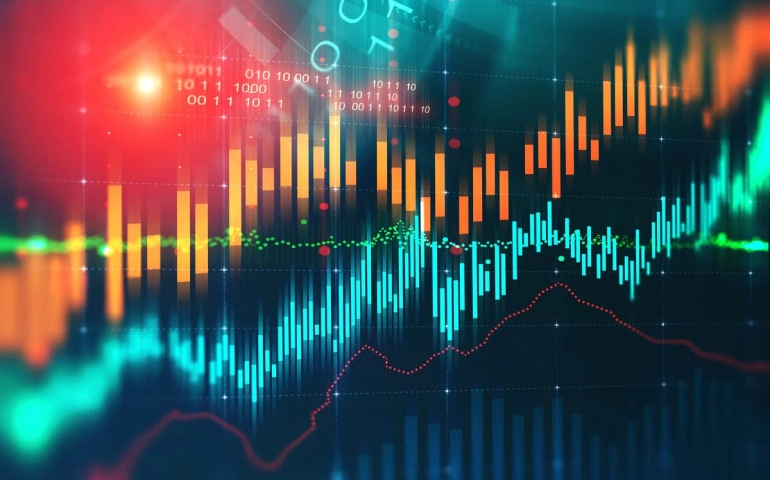Salary of a currency trader: how much can you earn on Forex?
 08 / 12 / 23
Visitors: 355
08 / 12 / 23
Visitors: 355
When we think of volatility, the first thing that comes to mind is the foreign exchange market. Undoubtedly, the Forex market is one of the most volatile markets. A trader must have the necessary knowledge and skills to achieve promising results. Since the market is full of fluctuations and never settles down, a Forex trader needs to develop profitable trading strategies.
In order to evaluate a trader's skill and knowledge, you need to know how much they can earn from their trades. Many will say that they earn millions every year. However, only few people tell the truth about their real income.
What is the average salary of a Forex trader?
The average annual income of a Forex trader in the United States is $83 500. This information comes from data provided by ZipRecruiter in 2022. The average day trader salary is $65 000 in the US in 2022.The average trader salary will be around $82 000 in 2023.This is mainly because of the possible recession.
However, Forex trader's salary varies greatly and the most important factor affecting it is the amount of starting capital.
The minimum capital a trader should have is $100 000. The best annual returns are up to 20%, although many traders will disagree with this statistic due to their inflated expectations. However, in the trading industry, traders should be reasonable and accept an annualized return of 15-50% as very high.
These figures may vary when it comes to individual Forex traders. Other factors that affect a trader's income are performance, location and others.
Read this article to learn more about these factors and their impact on trader income.
Average annual salary of Forex traders
The annual salary of Forex traders can range from $32 000 to $100 000, with some traders earning as much as $120 000.
According to data provided by Indeed, US Forex traders can earn an average salary of $98 000 and commissions of $25 000. The highest salary recorded by Indeed at Citi Trader was $196 900. Another Payscale report states that on average, equity traders earn $95 800, including $14900 in bonuses.
Effect of various factors on Forex traders' earnings
The above data only shows the average annual earnings of Forex traders. The actual payouts of individual Forex traders can vary greatly. This is mainly due to factors such as experience, knowledge, location and organization that greatly affect each trader's earnings.
Let's shed some light on these factors and how they can affect an individual trader's salary.
Organization/Institution
A Forex trader's salary can be influenced by the organization or institution he/she works for. Traders in private companies can earn more through base salaries and increased bonuses, compared to government organizations where trader salaries are not hidden.
An example of the above statement is the difference in the salaries of traders at Citi (private company) and Goldman Sachs (public company). The average annual salaries of traders in these companies are $151 500 and $120 500 respectively. These salaries do not include any bonuses.
Forex Trader Title
It is claimed that your experience helps in career advancement. And as your rank increases, so does your income. The same is true for hedge fund traders. A trader can have different designations based on their experience in the Forex market. Some of them are senior trader, junior trader, portfolio manager and strategist.
Most traders start their career as analysts. This is the initial stage where they help senior and junior traders. This stage lasts an average of six years, after which analysts become junior traders. As the junior traders grow in experience and improve as currency traders, they are promoted to senior traders. However, this may take longer, as the skills required to become a senior trader are acquired through prolonged trading practice.
The average annual income of junior traders ranges from $240 000 to $3 500 000. However, senior traders earn around $12 000 000 000 per year. These numbers can vary depending on the experience of the individual trader. In addition, senior portfolio managers earn the most because of the high turnover rate in this industry.
Place of employment
The trading market is very active in some regions, but not in all parts of the country. Depending on the activity in these places, the earnings of currency traders vary.
If we consider the United States of America, the most active and highest paying markets are in states on the east coast of the continent. Traders in New York, Connecticut and Maine earn between $110 000 and $125 500. Operators in Nevada and Idaho earn about $55 000, the lowest earnings recorded in those states.
In the UK in 2022, a Forex trader can earn around £36 000 per year. This is just an average salary based on data provided by former employees. Salaries in the UK also vary depending on the location of the firm. For example, £45 000 is the income of Forex traders in London, while traders in Brownwood can earn around £21 000.
Achievements/Results
A trader's achievements and results also determine their income. If a trader is experienced enough to manage a $500 million portfolio and can deliver positive results, they can earn up to $5 million a year. However, the base salary ranges from $55 000 to $95 000. Therefore, if the trader cannot perform effectively, he will be getting a base salary.
Factors that determine the salary of an independent Forex trader
Previously, we have seen how much a Forex trader earns per year working for a hedge fund or an investment bank, in different locations and with different experience. However, determining the income of a Forex trader working independently depends on the following factors.
Initial capital
Different investments yield different returns. The initial capital that a trader puts into the market is an investment. The larger the capital, the higher the return, provided all other risk factors are neutral. For example, a trader's goal is to earn a 10% return on his investment. A trader who invests $100 000 will earn $10 000, while a trader who invests $1 000 will only earn $100.
Cost of trading
If a trader works for a company, then the costs of trading are borne by the company, which is not the case with an independent trader. Since all costs are paid by the trader, it can greatly affect their income. Some of these costs include commissions paid on stocks and ETFs, swap agreements to hold positions in the market, and the spread paid for the difference between the buy and sell price of an asset.
ROI (Return on Investment)
The cost of trading is a fixed cost and the initial capital is chosen by the trader. However, the return on investment is something that fluctuates. This is due to changes in market trends, the trader's trading skills, the release of economic news and other factors. These factors are beyond the trader's control and affect his returns. Because of these factors, a trader's payouts can vary significantly.
Some of these factors that affect a trader's earnings are as follows:
- Frequency of trades - A trader cannot expect to earn higher profits by making a limited number of trades. If a trader wants to earn higher income and promising returns on his investment, he should try to make more trades with higher returns rather than one or two trades per week with mediocre returns.
- Trading Style - Your trading style and the risk you are willing to take determine your earnings. If you want to make money fast and are willing to take risks, you can make more money with short-term trades. If, on the other hand, you don't want to take risks but want to earn more profits, invest in long-term trades.
Summary
The salary of a currency trader depends on many factors. Place of work, organization, skills, knowledge, market conditions and many more. These factors are beyond the trader's control and cannot be changed. However, some of these factors can be changed as needed. Also, if a trader is satisfied with fixed income and wants to gain experience without taking any risk, he can join an organization. If the trader is confident enough to generate good profits and is willing to take market risks, he can work independently.







